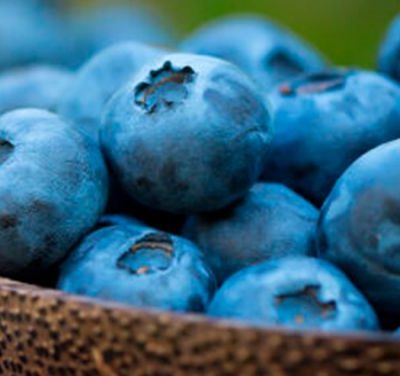Blueberries are truly a super food – massive benefits of eating these berries
 Current studies show that blueberries ranked number one in antioxidant activity. In a study conducted by researchers at TuftsUniversity, Jennifer Meengs, from the Laboratory for the Study of Human Ingestive Behavior at PennState, has said that blueberries were, “superheroes, packed with chemicals that can help fight disease.”
Current studies show that blueberries ranked number one in antioxidant activity. In a study conducted by researchers at TuftsUniversity, Jennifer Meengs, from the Laboratory for the Study of Human Ingestive Behavior at PennState, has said that blueberries were, “superheroes, packed with chemicals that can help fight disease.”
Blueberries contain important phytonutrients includinganthocyanidins and phenolics which inhibit free radical damage to the collagen matrix of cells and tissues that can lead to cataracts, glaucoma, varicose veins, hemorrhoids, peptic ulcers, heart disease and many cancers, especially ovarian cancer. The American Chemical Society reports that a key antioxidant found in blueberries, pterostilbene, can also help to neutralize free radicals responsible for triggering colon-cancer growth.
In a study conducted by the USDA Human Nutrition Research Centerlaboratory, neuroscientists discovered that diets rich in blueberries significantly improved both the learning capacity and motor skills of aging animals, making them mentally equivalent to much younger ones. Blueberries are considered an “anti-aging” food.
Blueberries are also high in fiber and tannins which help reduce inflammation in the digestive track and aid in elimination. Researchers at Rutgers University in New Jersey have identified compounds in blueberries called proanthocyanidins that promote urinary tract health and reduce the risk of infection by preventing bacteria, particularly E. coli, from adhering to the cells that line the walls of the urinary tract.
Blueberries are nutritious, high in vitamins C and A as well as the mineral manganese, A single serving, of blueberries provides 14 mg of Vitamin C – nearly 25 percent of the daily requirement. Vitamin C aids the formation of collagen and helps maintain healthy gums and capillaries. It also promotes iron absorption and a healthy immune system.
Manganese plays an important role in bone development and in converting the proteins, carbohydrates and fats in food into to energy.




